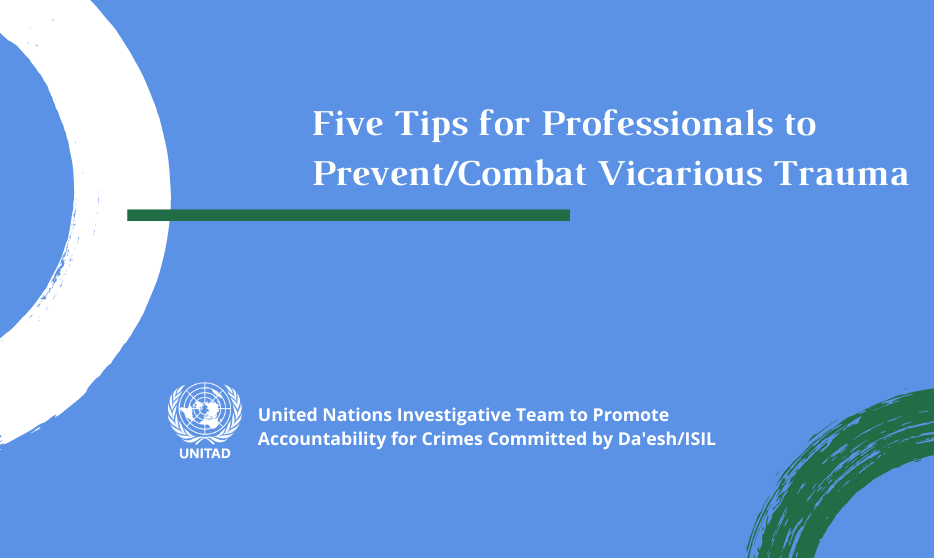- عربي
- English
Five Tips for Professionals in Preventing/Combating Vicarious Trauma
Maintaining good mental health is essential for professionals working with victims/survivors of war crimes. Due to the nature of their work with traumatized children, adults and families, they are exposed to distressing narratives that may evoke some reactions. For this reason this professional population is likely to experience Vicarious Trauma.
Vicarious Trauma results from empathetic engagement with persons who have suffered traumatic incidents. It changes the professionals’ view of themselves, others, and the world, and it may cause similar symptoms as those impacted by primary trauma.
So, what are the most important tips to help professionals working with victims/survivors maintain their mental health and prevent adverse outcomes of Vicarious Trauma?
- Conduct a regular self-check to reflect on your inner feelings and emotions in relation to your work: an important activity is to become more mindful by acknowledging your feelings and inner thoughts. This reflection gives you a chance to identify early signs of emotional distress and allow for early intervention.
- Identify trends in distress triggers: what are the situations, stories, or traumas that trigger your distress? Answering this question is key to knowing how to manage your distress.
- Ask yourself, what are the key gratifications of working in this field? However small they are, moments of content with your work and its purpose help you in overcoming distressing times. So make it intentional to list all that makes you content about working in this field.
- Seek help and resources when needed: seeking psychological help is an option in combating vicarious trauma, and any emotional distress you experience while working with victims/survivors. However, equipping yourself with appropriate resources will be helpful such as educational material to build resilience and coping strategies, in addition to adopting a healthy work life balance.
- Seek support from your organization: Vicarious Trauma can be an occupational hazard. Therefore, it is important to let your manager know if you are experiencing symptoms. This helps in pointing you to the right resources that the organization offers to manage and/or prevent an exacerbation of symptoms.
In order to assist professionals in this field, organizations are invited to take measures to promote an environment where staff care is encouraged and where there is a culture that acknowledges the potential for Vicarious Trauma. Maintaining such culture is likely to lead to a healthier environment for both workers and their traumatized clients and a higher and more consistent quality of service.


